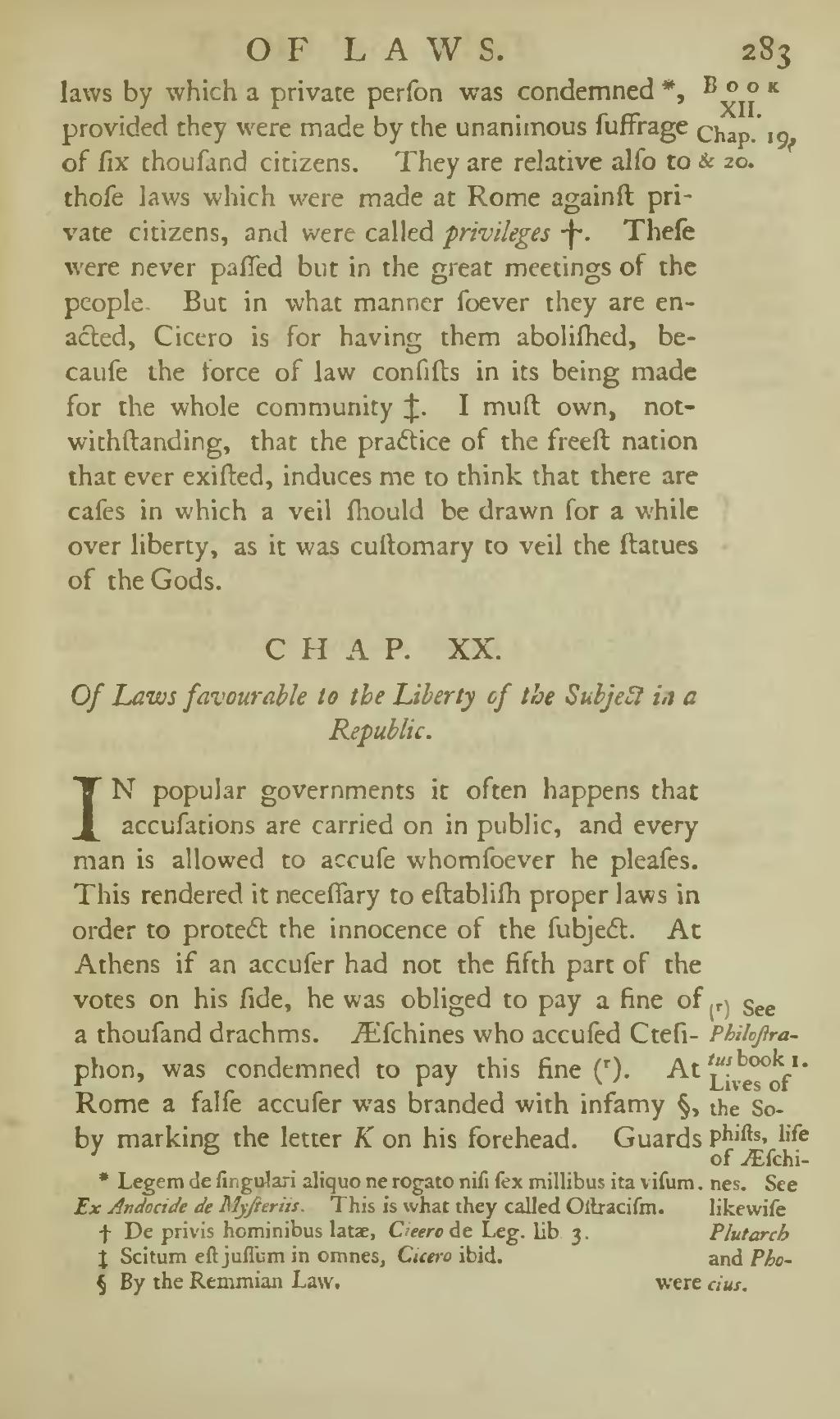Book XII.
Chap. 19, & 20.laws by which a private person was condemned[1], provided they were made by the unanimous suffrage of six thousand citizens. They are relative also to those laws which were made at Rome against private citizens, and were called privileges[2]. These were never passed but in the great meetings of the people. But in what manner soever they are enacted, Cicero is for having them abolished, because the force of law consists in its being made for the whole community[3]. I must own, notwithstanding, that the practice of the freest nation that ever existed, induces me to think that there are cases in which a veil should be drawn for a while over liberty, as it was customary to veil the statues of the Gods.
CHAP. XX.
Of Laws favourable to the Liberty of the Subject in a Republic.
IN popular governments it often happens that accusations are carried on in public, and every man is allowed to accuse whomsoever he pleases. This rendered it necessary to establish proper laws in order to protect the innocence of the subject. At Athens if an accuser had not the fifth part of the votes on his side, he was obliged to pay a fine of a thousand drachms. Æschines who accused Ctesiphon, was condemned to pay this fine[4]. At Rome a false accuser was branded with infamy[5], by marking the letter K on his forehead. Guards
- ↑ Legem de singuhri aliquo ne rogato nisi sex millibus ita visum. Ex Andocide de Mysteriis. This is what they called Ostracism.
- ↑ De privis hominibus latæ, Cieero de Leg. lib 3.
- ↑ Scitum est jussum in omnes, Cicero ibid.
- ↑ See Philostratus book 1. Lives of the Sophists, life of Æschines. See likewise Plutarch and Phocius.
- ↑ By the Remmian Law.
